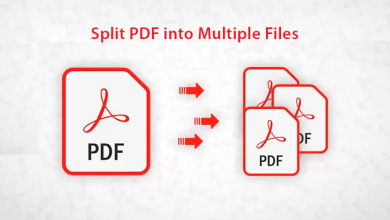CMMC and the Future of Cybersecurity for Contractors

In the digital age, the cybersecurity landscape is constantly evolving, and staying ahead is more important than ever. For contractors, especially those in the defense sector, understanding and implementing effective cybersecurity measures is crucial. The Cybersecurity Maturity Model Certification (CMMC) plays a significant role in this context, ensuring that contractors adhere to a set of cybersecurity standards and practices. By focusing on CMMC assessments and requirements, businesses can protect themselves from the ever-growing threat of cyberattacks. This blog explores the future of cybersecurity for contractors, emphasizing the integration of cutting-edge technologies into CMMC protocols.
Integrating Quantum Computing to Enhance CMMC Protocols
Quantum computing represents a new technological frontier with the potential to revolutionize cybersecurity. Quantum computers can process information at unprecedented speeds, making it possible to solve complex problems that classical computers cannot handle. For contractors, integrating quantum computing into CMMC protocols can significantly enhance security measures. The ability to process large datasets and perform complex computations rapidly ensures that CMMC assessments remain robust and effective against cyber threats.
One of quantum computing’s key advantages is its potential to break current encryption methods, necessitating the development of new quantum-resistant algorithms. Contractors who align their cybersecurity strategies with CMMC requirements can utilize quantum computing to create encryption methods that are nearly impossible for attackers to breach. This advancement ensures that sensitive data remains secure, aligning with the goals of the CMMC framework and fortifying the contractor’s cybersecurity posture.
Leveraging Artificial Intelligence for Real-Time Threat Detection
Artificial intelligence (AI) is transforming the way organizations approach cybersecurity. By incorporating AI into CMMC protocols, contractors can achieve real-time threat detection and response, ensuring that potential risks are identified and neutralized before they cause damage. AI-driven systems can analyze vast amounts of data, recognize patterns, and identify anomalies indicative of cyber threats, making them a valuable asset in meeting CMMC requirements.
AI also offers the advantage of continuous learning. As new threats emerge, AI systems can adapt and improve their detection capabilities, providing a dynamic approach to cybersecurity. This adaptability is essential for contractors seeking to meet the rigorous standards set by CMMC assessments. By integrating AI, contractors can enhance their cybersecurity defenses, protect sensitive information, and ensure compliance with CMMC requirements.
Developing Blockchain Solutions for Secure Supply Chains
Blockchain technology offers a promising solution for securing supply chains, a critical aspect of CMMC compliance. By utilizing blockchain, contractors can create a transparent, immutable ledger that tracks the movement of goods and information throughout the supply chain. This transparency ensures that every transaction is recorded and verified, reducing the risk of data tampering and unauthorized access.
Implementing blockchain within the supply chain strengthens security and increases efficiency. By adopting blockchain solutions, contractors can streamline operations, reduce fraud, and improve traceability. These advancements align with the requirements in CMMC, ensuring that contractors maintain a secure and resilient supply chain capable of withstanding cyber threats.
Implementing Zero Trust Architecture within CMMC Frameworks
Zero Trust Architecture (ZTA) is a security model that assumes no entity, whether inside or outside the network, can be trusted. This approach is particularly relevant to CMMC, emphasizing strict access controls and continuous monitoring to protect sensitive data. By implementing Zero Trust Architecture, contractors can ensure that only authorized users have access to critical systems, aligning with CMMC requirements.
A key component of Zero Trust Architecture is the use of multifactor authentication and micro-segmentation, which limit access to specific parts of the network. These measures ensure that even if an attacker gains entry, their ability to move laterally within the network is restricted. This approach enhances the contractor’s cybersecurity posture and ensures compliance with CMMC assessments, providing a robust defense against cyber threats.
Utilizing Machine Learning for Predictive Cyber Threat Analysis
Machine learning (ML) is a powerful tool for predictive cyber threat analysis, enabling contractors to anticipate and respond to potential attacks proactively. By analyzing historical data and identifying patterns, machine learning algorithms can predict future threats and suggest preventive measures. This capability is invaluable for contractors seeking to meet CMMC requirements, as it allows for a proactive rather than reactive approach to cybersecurity.
Machine learning can also improve the accuracy and efficiency of CMMC assessments by automating the analysis of large datasets. This automation reduces the time and resources required for assessments, allowing contractors to focus on implementing effective cybersecurity measures. By incorporating machine learning into their cybersecurity strategies, contractors can ensure compliance with CMMC requirements and enhance their ability to protect sensitive information from cyber threats.
Enhancing Cyber Resilience through CMMC-Compliant Cloud Solutions
Cloud computing has become an integral part of modern business operations, offering flexibility, scalability, and cost-effectiveness. For contractors, utilizing CMMC-compliant cloud solutions is essential for enhancing cyber resilience and meeting CMMC requirements. These solutions provide a secure environment for storing and processing sensitive data, ensuring compliance with CMMC assessments.
One of the key benefits of cloud computing is the ability to implement advanced security measures, such as encryption, access controls, and continuous monitoring. These measures protect against cyber threats and ensure that contractors can quickly recover from incidents, maintaining operational continuity. By adopting CMMC-compliant cloud solutions, contractors can enhance their cybersecurity posture and ensure that they meet the rigorous standards set by the CMMC framework.
The future of cybersecurity for contractors is closely linked to the effective integration of advanced technologies into CMMC protocols. By focusing on quantum computing, artificial intelligence, blockchain, Zero Trust Architecture, machine learning, and cloud solutions, contractors can enhance their cybersecurity defenses and ensure compliance with CMMC requirements. These advancements are crucial for protecting sensitive information, maintaining a secure supply chain, and ensuring the resilience of contractor operations in an increasingly complex digital landscape.





